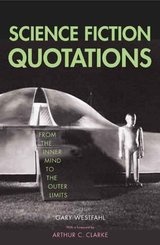Here’s an old Times article that’s worth reviving. The article argues that as a genre science fiction is overlooked for a number of reasons.
It also features one of my favourite quotes: a definition of Science Fiction as “Hubris clobbered by Nemesis”.
It was published in 2007… do you think much has changed?
Does a book count as a living organism? Only if it is read.
A century has passed since the Russian scientist Yevgraf Korolenko stated that “the Earth is a living organism”. In our time. James Lovelock, with his theory of Gaia, has put flesh on the words. And now we see animals and insects becoming extinct, ice caps melting, high winds and high seas abounding. Thanks to mankind’s activities, the living organism seems to be dying.
Some while ago, I coined a brief definition of science fiction (henceforth, SF): “Hubris clobbered by Nemesis.” Well, here it comes now.
As more and more of the planet’s citizenry choose to live in cities, so this possibly fatal wound to the planet becomes harder to deal with.
SF is a city literature. It thrives in developed countries. It’s the magic brewed, not in the high street, but in side streets, in high-rise apartments, in hotel rooms, in offices, in airport lounges. It is predominantly an urban literature, written from within that love-hate relationship we have for our big cities. For the citizen, this is city Zen. Just a touch short of oceans and glaciers and impenetrable forests.
Ever since Mary Shelley’s Frankenstein Or, The Modern Prometheus, SF has been dishing out a variety of gloom and diets of catastrophe. The refreshed version of my A Science Fiction Omnibus offers a modest selection. Well, it is not all gloom; there is also fine satire, such as William Tenn’s Liberation of Earth, and the comedy of Katherine Maclean’s The Snowball Effect. There are also magisterial stories that it is difficult to classify, such as Eric Frank Russell’s Sole Solution and Ward Moore’s Lot.
You know the names of all these authors, of course. What, you don’t? I have known and enjoyed many of them for decades, in all their variety.
But I do see that a wall much like the Great Wall of China has been erected against SF — although H.G.Wells has escaped the general banishment. It is a shame, for the authors are so different one from another, so disconcerting, so thought-nourishing. So despairing, so optimistic… There could be something most of us are missing.
As a youth, I most enjoyed stories of disorientation. A reader did not know where he was, in past or present or future, or who was speaking, man, android, or alien. Only gradually did the fogs clear. A little ratiocination was needed. And the story served as a metaphor, at an age when one did not really know the world or oneself. That is valuable, even if it is undervalued by the general public.
Perhaps snobbery is involved. Stephen Fry has asked: “Why do science-fiction writers take themselves so seriously?” The answer is that seriousness is in general a characteristic of any writer or artist taking his work seriously. The Americans are great readers and creators of SF — I owe my living, and my gratitude, to American readers. As for the Italians, you are classified as an Intellectual if you enjoy fantascienza…
Not so long ago, space travel was a favourite SF topic. Now there are more stories and novels about psychology — human and artificial. Global warming is a difficult topic to handle since it holds so many aspects of SF.
An interesting scenario taking us beyond the present threat is contained in Noel Hodson’s novel, AD 2516 — After Global Warming (2005). In Hodson’s world, great storms abound, but the world is returning to calmer patterns, possibly because populations have declined.
“‘People have died, yet science survives.’ Joe pointed down at the gleaming white structure in the middle of the ocean. It was a vast complex disc encircling a placid lagoon. The outside walls soared hundreds of feet into the air like castle ramparts, straight out of the grey blue turbulent Atlantic… The walls sported thousands of windows and storm-proof balconies, rising to dizzying towers and sculpted pinnacles. Everywhere, there were wind generators of all sizes, spinning in the relentless Atlantic breeze.”
I have come across no reviews of Hodson’s book. A couple of months ago, Duckworth published my novel HARM, which airs the fact that Britain and America regularly “harsh-question”, ie, torture their prisoners. A not unimportant matter, surely? It received only one review — in The Times — apart from a long notice in, er, a SF magazine. The most hackneyed crime novel receives attention. But SF is not “beach reading” — not unless you know of a very stony beach.
To be a writer needs much endurance, a tolerance of neglect, a publisher who likes books, and pots of luck. On these grounds, you might think it was hopeless to work in the SF field. Happily, some of us can’t help it.
Still admirable and apposite after almost two centuries are the words of Percy Bysshe Shelley, who seems to speak directly to our greedy age. In his Defence of Poetry he has this to say:
“We have more moral, political and historical wisdom than we know how to reduce into practice; we have more scientific and economical knowledge than can be accommodated to the just distribution of the produce which it multiplies… We want the creative faculty to imagine that which we know…” My vote will always go to that creative faculty. I am pleased to have amassed a plump volume full of creative faculty.
Original article here.





[…] You can get the full article here. […]
[…] of the Daleks was science fiction 101. As author Brian Aldiss has suggested, SF may be defined as “Hubris clobbered by Nemesis”. Typically, a creation turns on […]